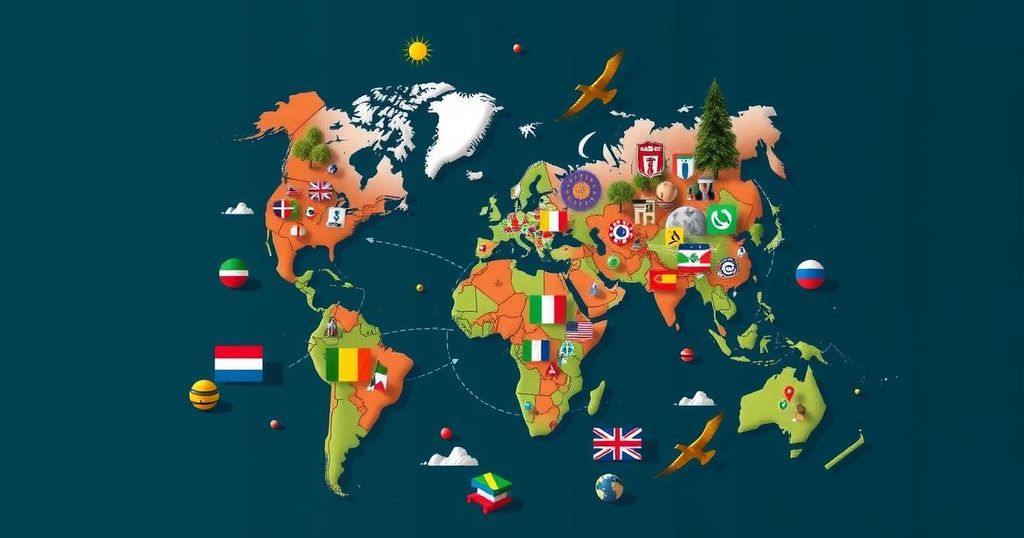Developing Nations Criticize Insufficient $300 Billion Climate Deal

Developing nations have expressed strong dissatisfaction with the recent climate deal reached at COP29, calling the $300 billion annual commitment from wealthy countries insufficient. The deal, although perceived by some as a step forward, remains a point of contention, revealing deep-rooted disparities in responsibilities for addressing climate change.
The recent climate deal, characterized by extensive negotiation, has faced strong backlash from developing nations who deem the $300 billion annual commitment from wealthy nations as insufficient. Amidst intense discussions at COP29 in Azerbaijan, nearly 200 countries reached a tentative agreement in the early hours; however, criticism ensued almost immediately. India’s delegate described the deal as an “optical illusion,” failing to address the monumental challenges posed by climate change. Leaders from countries including Sierra Leone and Nigeria echoed these sentiments, citing a lack of genuine support from affluent nations in the face of disastrous climate impacts.
Protests erupted during the negotiations, highlighting accusations against developed countries for negotiating in bad faith. Nations such as Marshall Islands, which face existential risks due to climate change, expressed disappointment with the outcome. While UN officials acknowledged the imperfection of the deal, they urged recognition of it as a foundation for future commitments. The agreement emphasizes the need for developed nations to contribute $300 billion annually by 2035, falling short of more ambitious targets previously suggested. The commitment also calls for voluntary contributions from emerging economies, although significant funding is still anticipated to emerge from private sources.
In light of President Biden’s characterization of the agreement as a “historic outcome,” the varying perspectives underscore the continuing discord on climate justice. Despite acknowledging the deal’s implications, critics assert that the ongoing struggle against climate change requires far more engagement and funding from wealthy nations than has been proposed. The negotiations at COP29 illuminate the enduring challenges of achieving global consensus in addressing climate change—especially for nations on the front lines of its impacts.
The climate deal discussed occurred at COP29, where representatives from nearly 200 countries gathered to negotiate financial commitments aimed at combating climate change. The focus was on securing significant contributions from developed nations, many of which have historically contributed to global emissions. The $300 billion annual pledge emerged from intense discussions, yet it fell short of what many developing nations expected. These nations face the brunt of climate-related disasters despite contributing little to the problem and have long advocated for more substantial financial support. The sentiments expressed during and after COP29 reflect larger tensions between developed and developing countries regarding responsibilities and resource allocations in addressing climate change.
In conclusion, the $300 billion climate deal approved at COP29 has sparked significant criticism from developing nations, who view the commitment as inadequate amid escalating climate crises. While some stakeholders, including US and EU officials, herald the agreement as a historic step, it remains a contentious outcome that many believe does not address the urgent needs of the most vulnerable countries. As discussions continue, the implications of this deal will undoubtedly influence future climate negotiations and the dynamics between wealthier and developing nations.
Original Source: www.al-monitor.com






